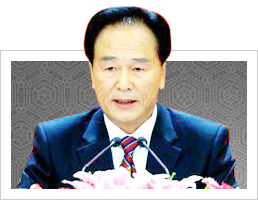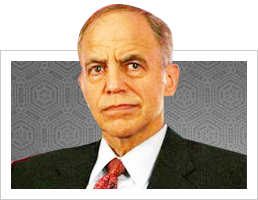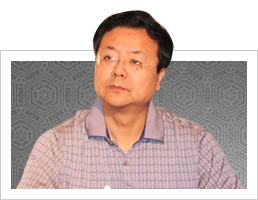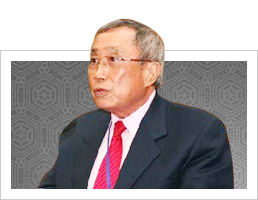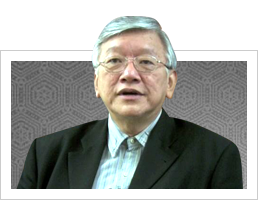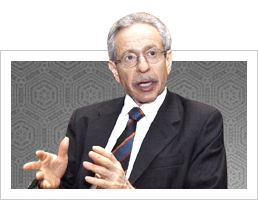The year of Chinese Dream

The author is director of the Academia Sinica Europaea at China Europe International Business School, Shanghai, Beijing and Accra, and founder of the Euro-China Forum.
In architecture, design, fashion and the arts, a renewed Chinese aesthetic is gradually imposing itself. From tea to calligraphy, the Chinese flavors and forms are being revitalized. The opening-up of the Middle Kingdom is not the dilution of China into a Western-centered order, but a reaffirmation of "Chineseness" and, therefore, entry into a multi-polar world.
"Civilizational China" aims to re-invent Chinese classical culture, but it is also the reinterpretation of traditional notions. While quantitative growth is transforming the life of the Chinese people, harmony has become the imperative to take into account the environmental factor, the call to maintain the equilibrium between material development and sustainability.
Progress, peace and harmony are the principles that substantiate "modern China", "global China" and "civilizational China".
But it is in reference to Taiwan that the year 2013 might have been highly significant. While Xi met senior Taiwan official Siew Wan-chang at the APEC gathering, he explicitly signaled to the island and to the world that the next decade might also mark the end of the Chinese political divide.
If Deng's political genius was at the source of Hong Kong's "one country, two systems", Xi is ideally positioned to design a framework that would take into account the specificities of the Taiwan question. After spending 17 years in Fujian, culturally a mirror of Taiwan, Xi has gained unique insights into Taiwan's economic and political dynamics.
He certainly had many occasions to reflect on the historic Chinese Dream of unity and to meditate in the opening of Luo Guanzhong's immortal novel The Three Kingdoms: "The world under heaven, after a long period of division, tends to unite; after a long period of union, tends to divide."
Connotations of Chinese Dream
Inspired by the Chinese Dream, more and more people have begun to chase their own dreams, including dreams to receive better education, start businesses, purchase homes and get rich. People firmly believe that as long as they work hard, their dreams would come true. [more]
Chinese dream and China's governance
A great deal will depend on how Xi Jinping will actually implement the core features of the program he has laid out and how he will seek to create incentives and constituencies to support his programmatic goals.In sum, President Xi has now made very clear where he stands and where he wants the country to go under his leadership, and he has achieved wide-ranging endorsement of this overall program. [more]
Chinese Dream includes strong PLA
The PLA as a pillar of State security follows the trend of the times and follows a principle that is different from colonial aggression and expansion. And China firmly believes in the principles of peace, cooperation and development of military ties with other countries. [more]
The Chinese dream and peaceful development
The most difficult issue in the region now is the the relationship between China and Japan regarding overlapping claims on the Diaoyu, or Senkaku, islands group. The problem is residual from World War II, and the historical part of the issues is complicated. That is why Japan PM Abe’s revisionist statement on World War II and its impact does not help. [more]
The year of Chinese Dream
Distinct from the American Dream, the Chinese Dream cannot be a narrative of pure newness. It is the imagining of a better future with the memory of 4,000 years of history, a movement of renaissance expressed in the vision of "civilizational China". [more]
Defeat challenges, realize Chinese Dream
High economic growth in recent decades may have made China more confident of realizing the Chinese Dream, but the country's new leaders face serious challenges that could hamper their efforts to realize the goal.First and foremost is the need to fight widespread corruption. Making this his main priority, President Xi warned that corruption could lead to "the collapse of the Party and the downfall of the State". [more]
World dialogue on the Chinese Dream
The “Personal Chinese Dream” focuses on the well-being of individual Chinese citizens and thus modifies traditional notions of the primacy of the collective over the individual. The dream of the Personal is balanced with the dream of the National. In fact, the fulfillment of The Personal Chinese Dream constitutes a good part of what it means to fulfill the National Chinese Dream. [more]
Making a nation's dream come true
Promoting Chinese concepts in the rest of the world is not very difficult - stop translating key Chinese terminologies (at best, give the appropriate or closest meaning and continue with the Chinese terminology). If kung fu, wushu, rujia, shengren, junzi can be understood and accepted by the outside, why not zhongguo meng? Once you translate a Chinese term you give away the definition of thought. [more]

